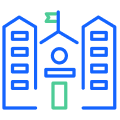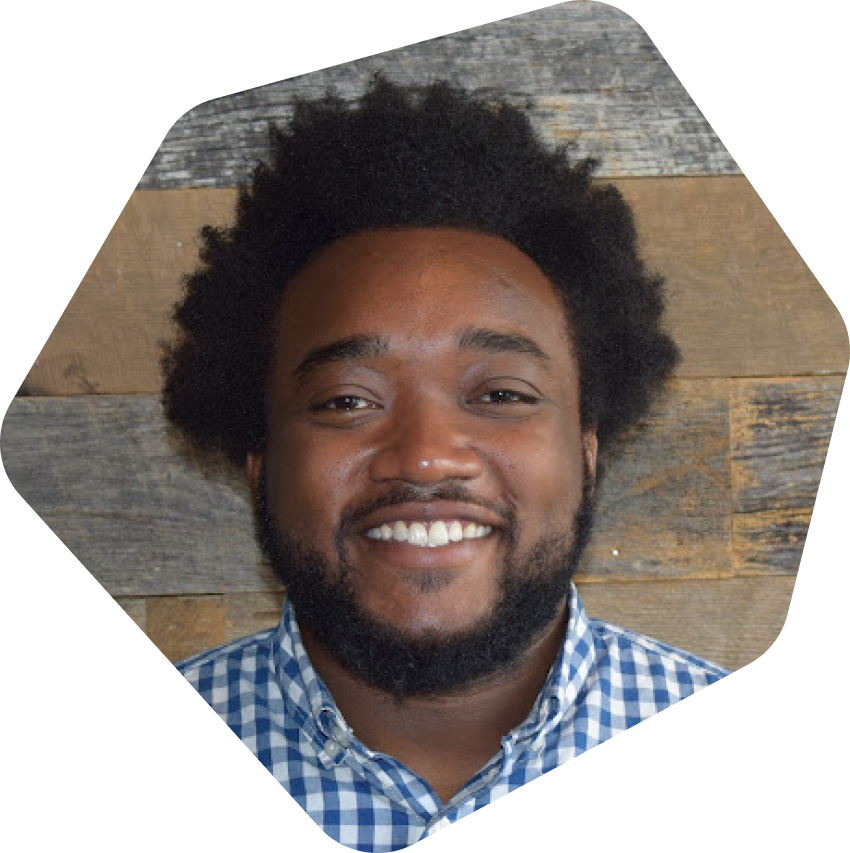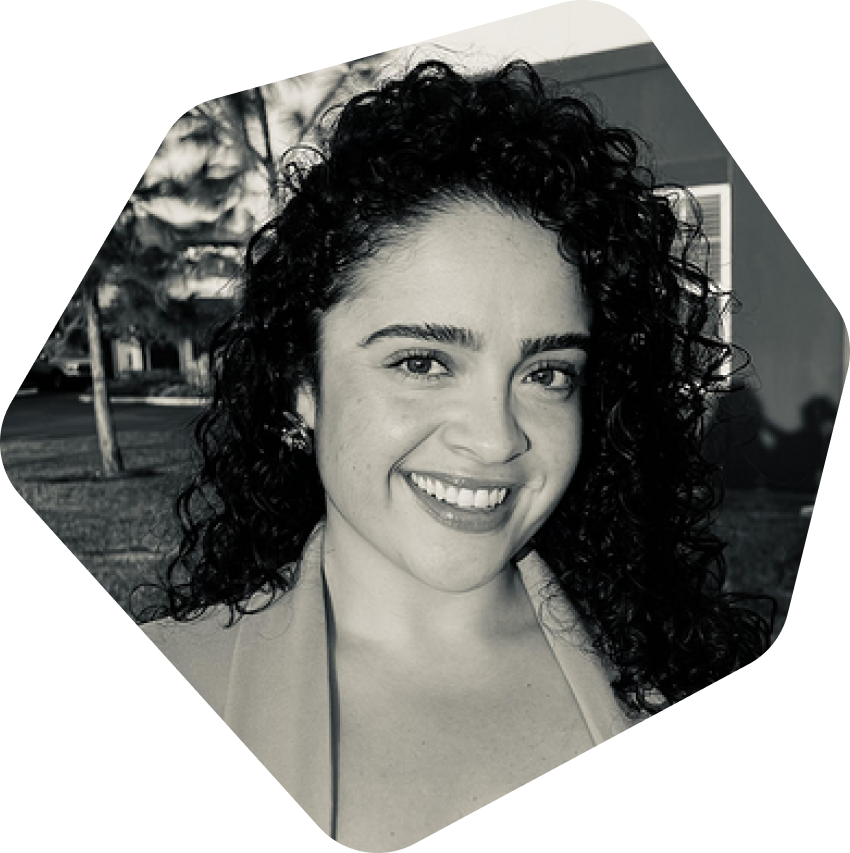Year in review: Inclusion and Belonging in 2024
A snapshot of our learnings around inclusion and belonging for 2024 – our focuses, our progress, and where we need to improve.
Clever remains deeply committed to diversity, inclusion and belonging, recognizing its importance in meeting the needs of our customers and providing a positive experience for our team, all of which strengthens our business outcomes. Achieving this requires embedding this lens across every aspect of our organization—from people processes to products, culture, and core values. Over the nearly four years of leading this work, I’ve been inspired by how our entire company has embraced their learning journey, making our efforts more systemically-focused, integrated, and strategic, while maintaining a focus on continued growth and amplifying marginalized voices. In our yearly update, we celebrate our progress and acknowledge areas where we can improve.
What we’re proud of
This work is not simply a set of programs and tasks; our inclusion work is an ongoing pursuit, requiring us to experiment, think systemically, evaluate constantly, and adapt as we go.
This year, we’re proud of continuing our work to evolve our people processes, particularly changing our performance management process for more fairness. We increased representation across Black employees, Hispanic/Latine employees, and women and non-binary engineers (See our 2024 Diversity Report for more demographic data). We engaged in in-depth work to analyze our culture and how it is experienced by different groups. We brought edtech providers together around product inclusion. We continued our supplier diversity efforts. We also added new Employee Resource Groups to better serve our community, offered multiple modalities of inclusive leadership learning and upskilling, and shifted our career development model to better support all employees, among many other milestones.
Read on in the following sections for a deeper look into the areas where we’re proud of our accomplishments.
Focus on psychological safety and examining our culture
We shared previously that in 2022, we introduced the concept of psychological safety within our organization and its vital connection to equity and inclusion. Since then, we’ve focused on fostering key aspects that contribute to a psychologically safe environment—such as the freedom to fail and make mistakes, share difficult issues openly, and believe that each person’s unique skills and talents are valued. Culture change is an ongoing journey, and we’ve worked to encourage employees to discuss mistakes and challenging issues more openly and engage in difficult conversations. Our positive culture, built on strong relationships and mutual respect, can sometimes create a hesitation around giving critical feedback or addressing tough topics. To support this, we’ve started a pilot to train employees on a difficult conversations framework.
We also recognize that psychological safety varies based on individual social identities. As research has shown, the personal cost of speaking up or making mistakes is often higher for individuals from historically marginalized groups. This year, we worked closely with our managers to integrate this understanding into their teams’ experiences. We created tailored plans for each team because every group has unique challenges—whether it’s offering feedback, navigating interpersonal dynamics, or coming together as a new team and building initial relationships.
Effective culture work begins with a strong diagnosis of where we are. This year, we invested significant time in analyzing our culture, celebrating its strengths and identifying areas for improvement. Using tools like systems mapping and design thinking, we engaged company leaders to align on a comprehensive view of our culture and explore the employee experience from multiple angles.
Recognition is also a key component of culture, so we refreshed our internal recognition program to better fit our current needs. Our new Clever Catalyst Awards invite employees to nominate peers and vote for winners. This program ensures we’re highlighting contributions from a diverse set of employees, including those who may not always receive recognition, to celebrate a broader range of achievements across the organization.
Update on our people processes and systems
Fair performance management
We began a comprehensive performance management redesign in 2022, and that work is still ongoing. We strongly believe that how an employee’s performance is evaluated and recognized plays an indispensable role in delivering an overall equitable and fair employee experience.
This year, we shifted from a single performance rating (the traditional 1-5 scale that many organizations use) to two distinct measures: one evaluating performance in the current year and another assessing growth over time, as they each capture unique aspects of an employee’s contributions. For in-year performance, we moved away from numerical ratings to a more simple descriptor, recognizing the potential psychological impact of these scores. Our growth measure focuses on development within an employee’s level. We also continue to incorporate a process for identifying and naming any potential bias that might surface in performance calibrations.
We also standardized and expanded learning around the performance process, helping employees better understand evaluations and how compensation works. In fact, we now share compensation bands for both current and next-level positions in an employee’s job family, as well as compa-ratios. Additionally, feedback over the years indicated that our career ladders needed improvement to better serve our employees. In response, we launched an organization-wide project this year to redesign career ladders for every department to make progression at Clever more transparent and clear for all employees.

Learning and development
In 2022, we launched a formal Learning and Development (L&D) program, though we haven’t shared much publicly about its structure and impact. Our L&D program emphasizes both leadership development and functional or role-specific skill-building. Employees have access to a range of inclusive leadership learning opportunities to support their growth, starting with a primer. From there, employees can access additional inclusive leadership resources based on their needs and interests, from the Intercultural Development Inventory to more advanced training focused on analyzing and interrupting workplace dynamics.
Additionally, our L&D team strongly believes in the transformative power of coaching, which is why we offer coaching to all employees at Clever. Our coaching partnerships allow employees to request external coaches who share their backgrounds, fostering more personalized and meaningful support.
Hiring and recruiting
2024 brought greater intentionality to our hiring and recruiting processes, especially as we continue to strive toward becoming as diverse as the schools that we serve. In particular, we aim to de-bias our hiring practices as much as possible.
We further detail our efforts in our 2024 Diversity Report.
Product inclusion and our edtech ecosystem
Over the past few years, we’ve focused on advancing product inclusion within our organization, but this year we expanded that focus externally. Recognizing a shared commitment to product inclusion within the edtech community, we sought to foster greater connection, conversation, and collaboration with other providers.
To support this, we hosted two major events this year. In March, we convened a panel of edtech experts to discuss product inclusion. The positive feedback from that event inspired us to host it again in October, this time with adjustments based on participant input. We organized a series of case studies to provide concrete, actionable insights, helping edtech providers apply principles of product inclusion directly to their own work.
To learn more about the edtech product inclusion program, read my article “Building With Purpose: 4 Methods to build more inclusive edtech.”
Expansion of Employee Resource Groups
At Clever, Employee Resource Groups (ERGs) are essential to our ecosystem, providing meaningful support and connection for a variety of communities. Recently, we launched two new ERGs to address specific needs within our team: the Interfaith ERG and the Parents@ Clever community. The Interfaith ERG acknowledges the religious diversity within our organization and creates a safe space for employees to engage in cross-religious understanding, fostering respect and dialogue among different faith backgrounds. Parents@ Clever focuses on supporting parents, providing resources and community as they balance the demands of work and family life. These groups join our existing ERGs, all of which collaborate with an intersectional lens to address multiple salient identities and issues. Additionally, we are planning to launch a new disability ERG next year to continue expanding support for our Clever community.
Social impact at Clever
While our inclusion and belonging work has primarily focused on internal initiatives, we recognize the importance of extending our impact externally as well.
This year, we took necessary steps to shape and give more structure to our social impact program. Although we’ve participated in philanthropic activities in the past, we’re now exploring how we can deepen our commitment to broader K-12 communities. We began developing a roadmap for the future, aiming to make our efforts more cohesive by focusing on organizations that align with our core communities—teachers, parents, students, and others we serve. For example, we’ve led several initiatives this year to donate to teachers through DonorsChoose, directly supporting classroom needs. Cleverites have the option to forgo their anniversary gift and instead donate its value to an approved 501(c)(3) organization, ideally one that serves our core communities.

Additionally, we’re exploring ways to make volunteering more accessible and cohesive for our distributed workforce. With our shift from a Bay Area-based company to a workforce now scattered across the country, coordinating group volunteer activities has become more of a logistical challenge. However, we’re brainstorming creative solutions to keep our team connected and actively engaged in giving back through volunteering, no matter where they’re located. There is still ample room for growth, and we’re excited to expand our efforts in this space in the coming years.
Reflections from the year
Grounding in our “why”
In the day-to-day of inclusion and belonging work, it’s easy for individuals in an organization to lose sight of why this work matters. Staying grounded in and keeping top of mind our “why” ensures we are more purposeful and intentional in our actions.
Organizations may engage in this work for various reasons—improving overall business performance; enhancing employee engagement, retention, and satisfaction; believing that businesses are a microcosm of broader social inequities and have a responsibility to address these issues internally and externally. These are all quite compelling drivers for this work.
Leaning into multiple mindsets isn’t just acceptable; it’s highly valuable. In fact, these diverse perspectives exist throughout the organization, and by incorporating all of them, we can flex our messaging to reinforce the importance of these efforts across different contexts.
Keep the focus on systems
In our annual Diversity Reports, we often discuss the importance of driving systemic change, and our commitment to this remains strong. Systems thinking often requires a shift in perspective. Instead of viewing dynamics, events, or issues as isolated, we need to recognize them as deeply interconnected and address the root causes. This approach involves selecting interventions that will create lasting impact through proper and thorough diagnosis. Systemic change is about creating the conditions for sustainable progress by transforming the underlying structures and support mechanisms that shape the system. These might include current policies, relationships that exist, how resources get allocated, what power structures look like, deeply entrenched values held, and other organizational elements.
To achieve meaningful progress, we emphasize that it’s typically about changing systems, not individuals. This often requires us to reframe discussions—for example, it might be easy to blame individuals, such as hiring managers or interviewers for bias in interview processes. To create longer lasting change, we can shift the focus toward improving our systems. For example, we might lack consistency across processes, or we may not have clear rubrics in place to guide assessments effectively. It’s also possible that our evaluations don’t fully align with the actual responsibilities someone will handle day-to-day. And then, we have to consider how the changes that we’ll make to our hiring processes impact and produce changes to other parts of our organizational system.
This is not to let individuals off the hook from working to mitigate their own personal bias but our primary focus should be on building strong systems that support equitable and fair outcomes.
Staying close to the employee experience
As an organization grows and evolves, it’s essential to stay connected and keep a pulse on employees’ experiences and sentiments. While structured engagement surveys, which we conduct twice a year, provide valuable quantitative insights, qualitative feedback is equally important to capture the full picture. At Clever, those deeply involved in our efforts—such as ERG leads, our internal belonging committee and the inclusion workstreams they lead, and our People team—actively gather qualitative feedback throughout the year. This might involve focus groups for specific communities, quick 15-minute feedback calls on current initiatives, or other touchpoints. By regularly collecting this feedback, we’re able to quickly adapt, respond to organizational shifts, and ensure that employee insights are shared with leadership for timely adjustments for a more equitable experience
Focuses for the future
Increasing workforce diversity is crucial, but it’s equally important to ensure a consistent, high-quality employee experience across all demographic groups. We’ve been mindful of this area for years, yet it remains a key focus. For example, we recognize that as shown in research, the experiences of Black women in organizations often differ from those of other groups, and we need to address these nuances intentionally.
In addition, like many other tech companies, we are navigating challenging macroeconomic conditions, which often requires us to achieve more without significantly expanded resources. While we’ve clarified our business priorities, limited time and capacity can sometimes hinder our ability to fully realize our aspirations. We strive to help employees maintain balanced lives, yet juggling core role responsibilities, personal priorities, and Clever community engagement—such as attending ERG events or staying up-to-date on inclusive practices learning—can be challenging, despite our good intentions. Making these activities more accessible and easier to join will be a focus, and we will explore creative solutions.
We also have work to do in enhancing the experience for new employees. Our onboarding process has remained largely unchanged for several years. Yet, we know that a strong onboarding experience is critical to overall success in a role and company – and leads to more equitable experiences. With a revamp led by our Talent Acquisition team, we’re looking forward to rolling out an improved onboarding experience next year that better supports each new employee from day one.
As we move forward, we’re committed to deepening our efforts and building on the progress we’ve achieved so far. Each initiative brings us closer to a more inclusive and equitable environment, and we look forward to new opportunities to support our team and our overall edtech community in meaningful ways.
To learn more about DE&I at Clever, visit our website.

More to read
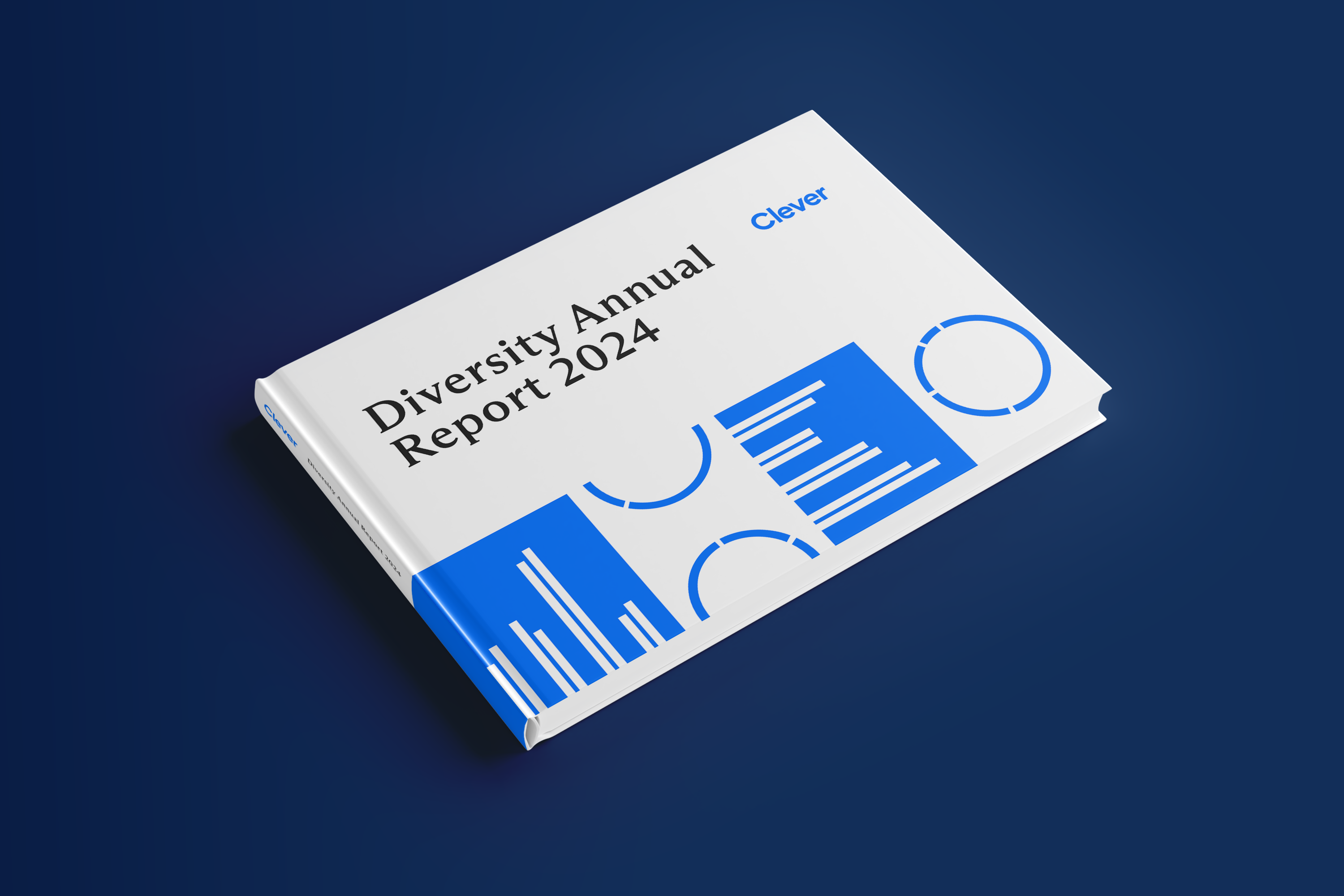
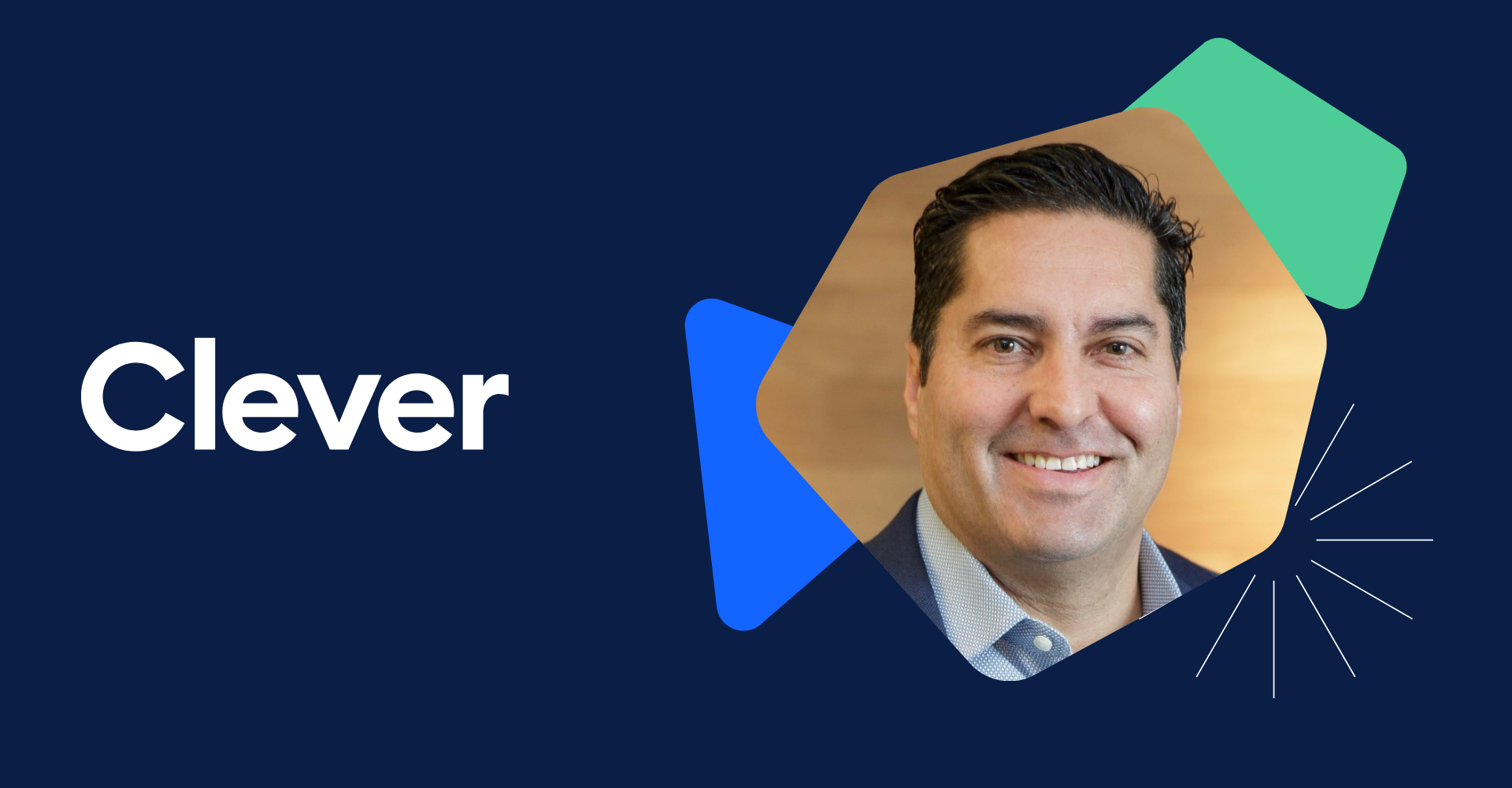
August 9, 2024
Welcoming Texas-based Dominic Via as Clever’s VP of SalesLearn about the major challenges Dominic Via is seeing for K-12 leaders, the latest successes in Texas schools, and upcoming trends that will impact school districts this year.
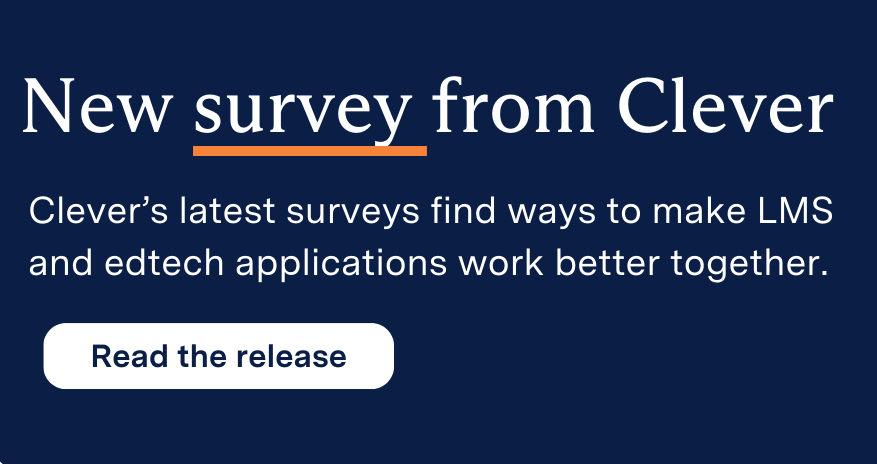
June 21, 2024
New survey from Clever finds technology integration as a top classroom challenge for teachersClever’s latest surveys find opportunities to make Learning Management Systems and edtech applications work better together. SAN FRANCISCO, June 21, 2024 /PRNewswire/ — Clever, the platform providing secure, seamless access to learning applications for 100,000 schools worldwide, released findings on the impact of data incompatibility on classroom learning and teacher experience. In internal surveys conducted from October 2023 through April 2024, […]









